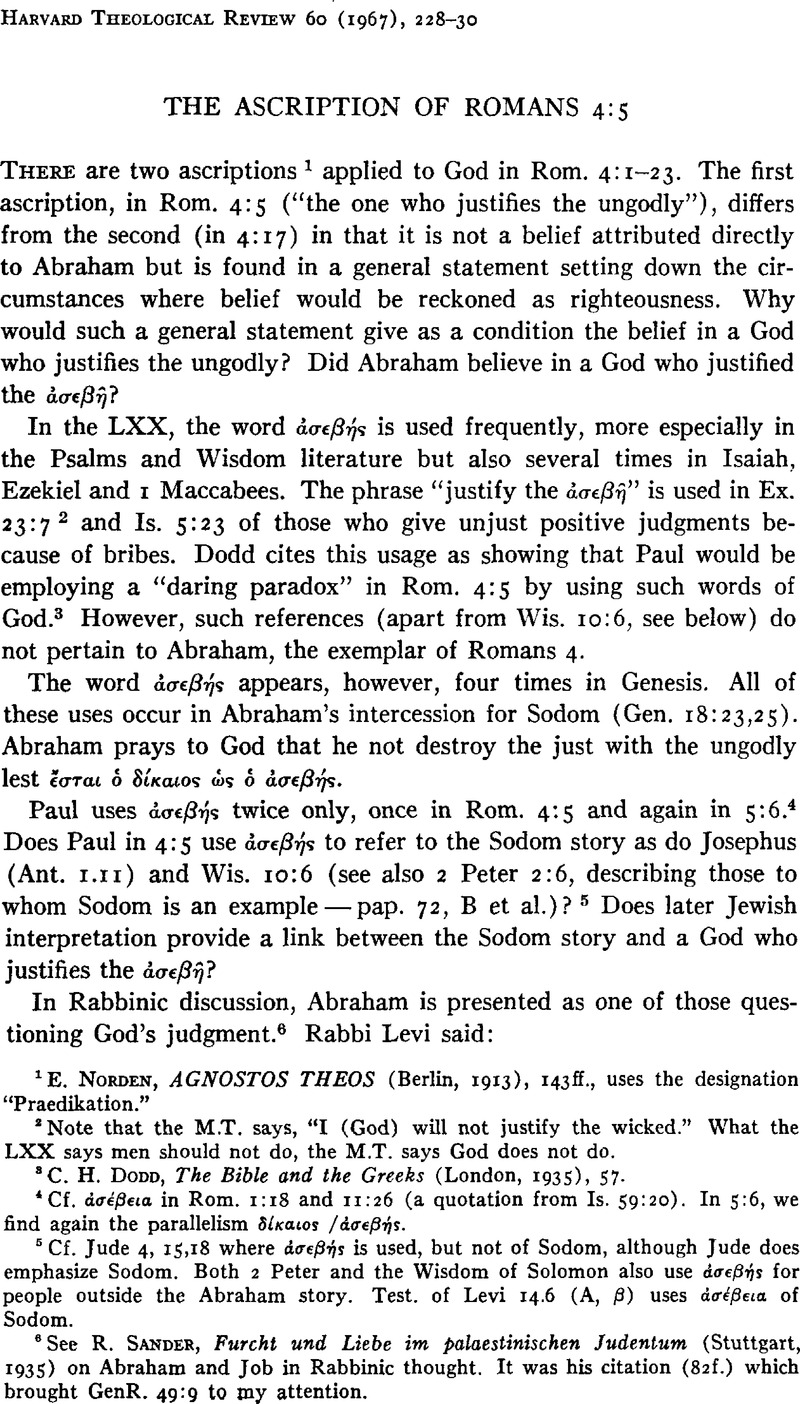Article contents
The Ascription of Romans 4:5
Published online by Cambridge University Press: 10 June 2011
Abstract

- Type
- Notes and Observations
- Information
- Copyright
- Copyright © President and Fellows of Harvard College 1967
References
1 Norden, E., Agnostos Theos (Berlin, 1913), 143ff.Google Scholar, uses the designation “Praedikation.”
2 Note that the M.T. says, “I (God) will not justify the wicked.” What the LXX says men should not do, the M.T. says God does not do.
3 Dodd, C. H., The Bible and the Greeks (London, 1935), 57Google Scholar.
4 Cf. ἀσέβɛια in Rom. 1:18 and 11:26 (a quotation from Is. 59:20). In 5:6, we find again the parallelism δίκαιος / ἀσɛβής.
5 Cf. Jude 4, IS,18 where ἀσɛβής is used, but not of Sodom, although Jude does emphasize Sodom. Both 2 Peter and the Wisdom of Solomon also use ἀσɛβής for people outside the Abraham story. Test, of Levi 14.6 (A, β) uses ἀσέβɛια of Sodom.
6 See Sander, R., Furcht und Liebe im palaestinischen Judentum (Stuttgart, 1935)Google Scholar on Abraham and Job in Rabbinic thought. It was his citation (82f.) which brought GenR. 49:9 to my attention.
7 Cf. 2 Bar. 85:1,12.
8 See edition by G. H. Box (London, 1927). The Testament of Abraham and IV Ezra are also used by Bowker, J. W., Intercession in the Qur'an and Tradition, Journal of Semitic Studies 11 (1966), 698Google Scholar., as examples for Abraham as intercessor. They are compared with the Qur'anic references to Abraham as pleader for Sodom (Sura 11) and the possibility of intercession mentioned elsewhere; yet, there is the warning of no intercession on the “day of encounter” (Sura 90). In the Jewish case, one might argue that the positive view of Abraham's relation to Sodom or Gentiles in Josephus and Paul (without the negative view of intercession held by IV Ezra and Wisdom of Solomon 10:12) is used by persons with a pro-Gentile address, who saw in Sodom a prototype of the Gentiles.
9 Paul's use of ἀσɛβὴς in 5:6 seems to be tied to 4:5 by means of 4:25 The ascriptions of 4:5 and 17 comprise a belief parallel (except for the being given over) to that described in 4:24,25. This chain is completed when the dying or being handed over is related specifically to the ungodly in 5:6.
- 2
- Cited by


